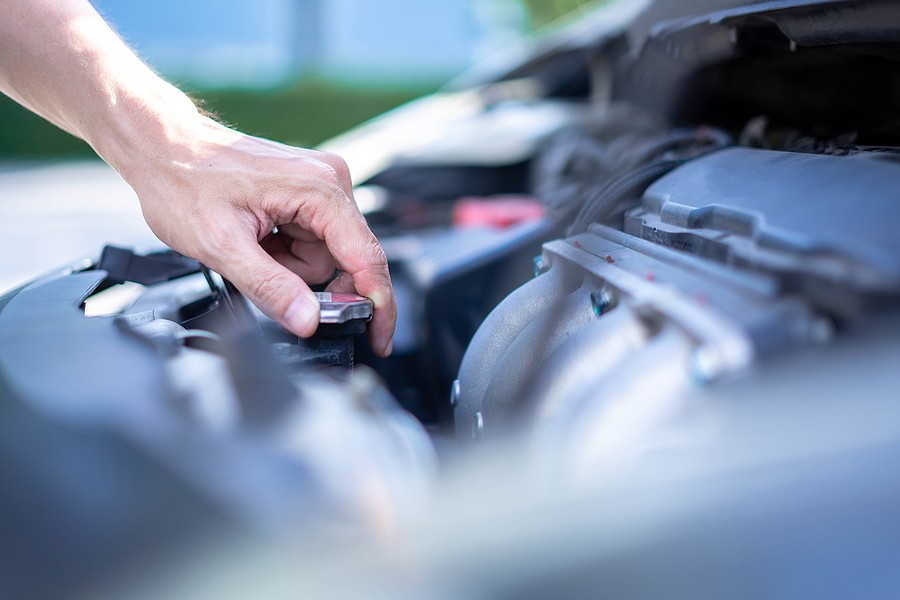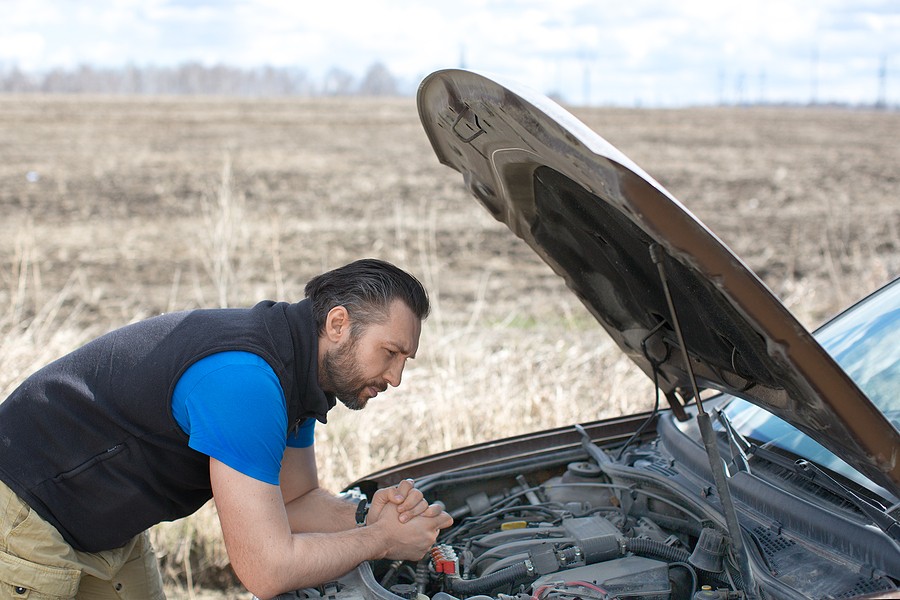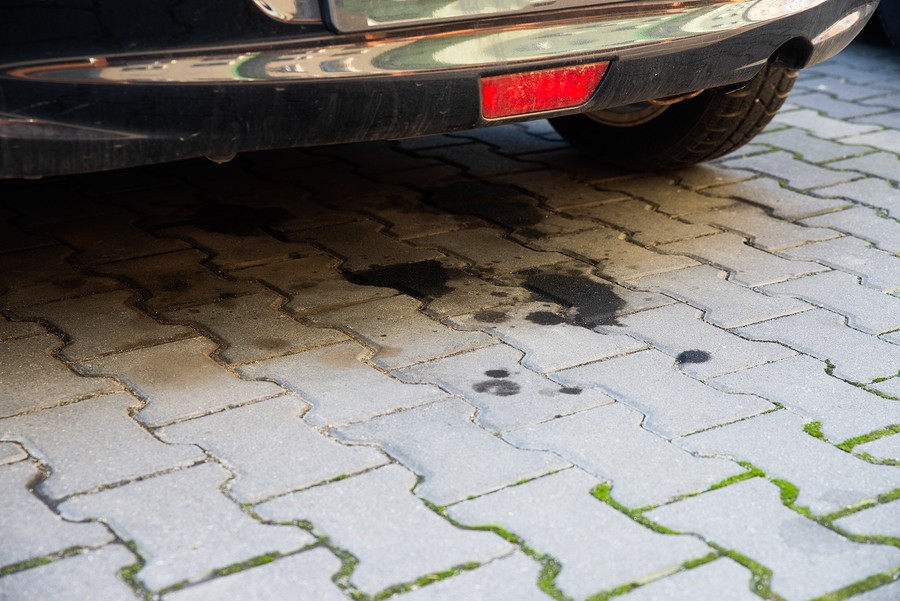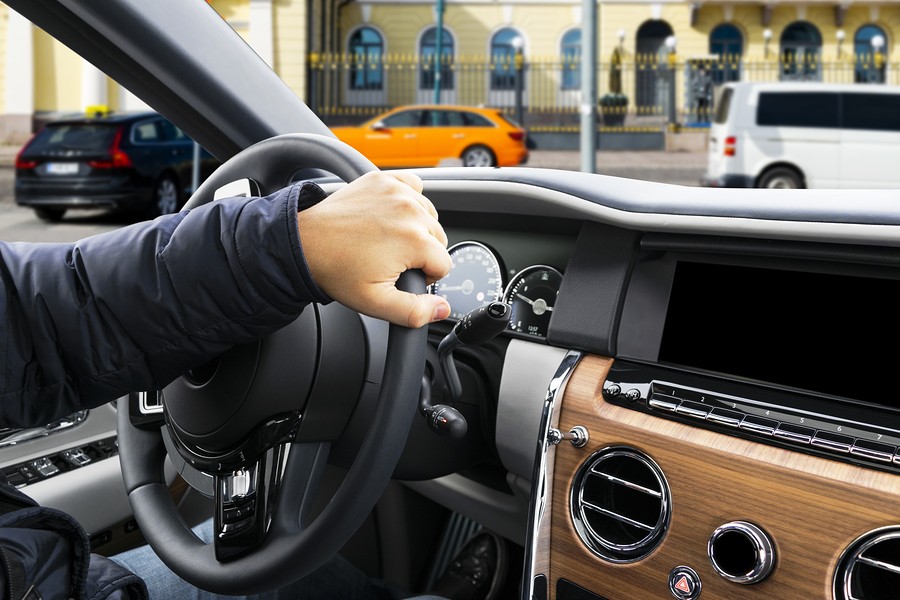Here are the 7 common symptoms of low coolant level:
- Significant reduction in fuel economy
- Coolant leak
- Issues with the radiator cap
- Troubles with that heater
- Issues with the overflow reservoir
- Sweet smell
- Engine overheating
Coolant is one of the most critical fluids in your vehicle. Without a proper coolant level, your engine will not run for a single minute without dealing with significant catastrophic outcomes. Therefore, it is critical for you as a driver to familiarize yourself with the common signs indicating that the coolant level is dropping.
When the coolant level drops below a certain threshold, you'll deal with significant breakdowns. That's why you want to detect early signs of low coolant levels before it gets to that point and before you deal with irreparable damages.
This article provides you with all you need to know about the seven common symptoms of low coolant levels. Whenever you notice any of these symptoms, you must take the right actions and pull over to stop your vehicle from topping it off. Note that in some local situations, you might need to tow your car to the nearest garage to resolve other issues that could be causing the coolant level drops.

What is the coolant, and what does it do in your vehicle?
Before we highlight the seven symptoms of low coolant level, it's critical to step back and get an idea about how the colon system works and what could go wrong when the coolant level drops.
Coolant is a water mix and antifreeze at a 50 to 50% ratio. This coolant circulates the engine and its different hot components to drop its temperature whenever it exceeds the maximum threshold. With the combination of water and antifreeze, coolant freezing and boiling temperatures are not the typical ones and make the school hunt withstand extreme conditions without any issues.
Due to various reasons, the current level might drop below a certain point. This happens, your engine will not receive the right amount of liquid to cool it down, and that's why you'll see some negative consequences that range from as low as a slight increase in the engine temperature to as high as significant damages in the engine.
7 symptoms of low coolant level
By now, you have a good understanding of what Google doesn't go wrong when the current level drops below a certain threshold here. Therefore, it's essential for you as a driver to familiarize yourself with the following seven symptoms of low coolant level:

1. Significant reduction in fuel economy
The first and most common symptom of a drop in coolant level is whenever you see that your engine is consuming more fuel than it should. This is referred to as low fuel efficiency or high fuel consumption.
Keep in mind that when your engine consumes more fuel than it should, the problem might be linked to various other issues. Therefore, we cannot immediately assume that it's a local level unless your mechanic confirms or sees other symptoms confirming the culprit.
2. Coolant leak
It's natural for coolant to drop its level at some point. However, if you realize that the coolant level is dropping significantly in a short time, it could be an issue with coolant leakage.
Therefore, if you realize that fluid is dripping underneath the vehicle, you must pull over and stop your vehicle immediately. While this fluid might be a long list of other fluids in your car, whatever it is, it could be one of the very critical fluids like the engine oil or probably the coolant.
Therefore, you'll need to consult your mechanic before driving your vehicle for a single minute. Otherwise, you might deal with significant damages that will cost you thousands of dollars on repair.
3. Issues with the radiator cap
Sometimes when there is a local level, you'll see that their radiator cap is not in good shape here; in other words, it will start spelling out coolant, and that's a good sign that there is something wrong with the cooling system.
You must never touch the cooling cap after running the engine. This is because the cooling system will be extremely hot, and by opening the cap, a massive amount of steam will gosh out of the cooling system, which causes hazardous situations.
Therefore, if you suspect an issue with the cooling system, you will need to allow your vehicle to cool down for at least between 15 to 20 minutes before touching anything around the engine hood.
If you're dealing with a bad radiator cap, you can probably be resolved it easily by changing it. Changing the radiator cap is not a complicated job and purchasing a new radiator cap is not very expensive.
4. Troubles with that heater
If the heating system is not working properly, it could be an issue at the local level. The heating system is linked somehow to the cooling system; add it absorbs the required amount of heat from the cooling system to heat your vehicle's interior. Therefore, if you've ever tried turning on the heating system and realize that there's no hot air coming out of it, it could be trouble with the coolant.

5. Issues with the overflow reservoir
In some instances, the overflow reservoir might show that there's an issue with your cooling system. Therefore, perform a dual inspection and check out the reservoir. If you realize that it's beyond the minimum or maximum points, you’ll have to check out the cooling system and either top it off or remove some of the extra coolants.
6. Sweet smell
The entire freeze typically has a sweet smell, and if you realize that your vehicles and terror smells like something sweet, it could be that the cooling system is leaking. But, of course, you must take every weird smell seriously without it being good or bad.
The entire freeze might cause some health problems, and inhaling it for a long time could be extremely hazardous. Therefore, whenever you notice it, you must reach out to your mechanic to resolve the issue as soon as possible.
7. Engine overheating
When the cooling system is not working properly, the engine will keep overheating until it reaches a very high point. Therefore, if you realize that the temperature gauge on the dashboard is increasing significantly, you'll need to check your coolant level because it could below
What causes the coolant level to drop?
As we did before, you were cool at a level that will drop over time slightly. However, it shouldn't drop significantly, and if it's dropping weirdly, it could be related to one of the following culprits:
1. External leaks
The first and most common reason for your coolant to drop significantly is whenever there is an external leak. For example, there might be an issue between the connections, or the radiator hose is probably not in good condition. Therefore, your mechanic needs to check these leaks and resolve them as soon as possible to prevent dealing with engine overheating problems.

2. Internal leaks
Similarly, the leaks might be internal. In other words, it might not be something obvious that you will notice in the form of fluid drops underneath the car. That's a more challenging situation, and therefore, your mechanic needs to use certain tools to help him detect these internal leaks before it gets more complicated and before it leads to significant catastrophic outcomes
3. Caps in the radiator leak
Sometimes the radiator itself might have a problem with the cap. You can easily replace the cap and purchase a better one that can securely close the system without causing radiator fluid to leak outside of it.
What to do When the coolant level drops?
If you notice any of the mentioned symptoms of a low coolant level, you must take the right actions to prevent the problem from getting overcomplicated. Typically, you'll need to follow these steps:
1. Do not panic
The most important step when dealing with any car problem is not to panic. If you start panicking, things will not work as they should because you'll be overwhelmed with the stress and won't follow the right actions.
2. Stop your car
If you're driving on the highway, you'll need to take the nearest exit and reach a safe place to pull over and stop your vehicle. However, the situation might be extremely critical, and you'll start noticing some significant signs of overheating, which means that you'll have to pull over and stop your vehicle on the highway shoulder.
3. Allow your vehicle to cool down
Do not touch the hood and do not open anything to check it out. Allow your vehicle to cool down for at least 15 to 30 minutes. After that, things will be extremely hot, and there's a very high chance that it will harm you if you try to open the cooling system.

4. Look for leaks
Check out around the vehicle and see any signs of coolant leaks. If that's the case, it might be that you won't be able to drive the car, and you'll have to wait for the tooling service.
5. Top off the coolant
If you don't see any signs of major leaks, you can top the colon and see if the problem is resolved. Note that you'll need to have some spare coolant in your vehicle all the time to prevent dealing with these situations.
However, some automotive experts might use water instead of coolant for a short time until you get to the nearest repair shop if you don't want to tow service. First, however, you must call your mechanic and confirm with him whether this is OK or not for your vehicle.
6. Consult your mechanic
If you have a mechanic, give him a call and describe the situation. Your mechanic will be the most familiar with your car, and he will give you direct instructions on what to do next. However, you might also need to reach out to your insurance company and take advantage of roadside assistance if you have one.
Reach out to help me paragraph if you don't have a roadside assistant plan in your insurance policy; you might want to reach out to one of your family members or friends to come and help you or to call a towing service to take your vehicle to the nearest garage.
What type of coolant should I use?
Your vehicle's owner’s manual should have detailed instructions about what type of coolant you should use. However, you can also purchase a higher quality coolant that has certain additives to protect the vehicle and prevent corrosion from building up.
There are plenty of high-quality coolant examples available in the market. We highly advise you to review some articles that highlight the main pros and cons of the best coolant types in the market. Note that some of the coolant types might not be compatible with your, so you don't cause any negative consequences that will cost you a lot of money.

7 symptoms of low coolant level: Final thoughts
Among the different fluids in your vehicle, the coolant is almost the most critical one. It prevents engine overheating that could cost you thousands of dollars on repair if the problems are a parable.
This article provided you with seven symptoms of local level to keep an eye for. Whenever you notice any of these symptoms, it is critical, but you take it seriously and consult on a mechanic to resolve the issue as soon as possible. Unfortunately, detecting the problem rarely helps you save on maintenance costs and protect your vehicle.
However, if you got a situation where the engine got completely damaged, go, and that's not a problem because you can always sell your car and take advantage of its value to buy a better one. However, who would like to buy a vehicle with major engine problems?! Cash cars buyer does!
Cash Cars Buyer is one of the top-rated car removal companies in the nation that guarantees to pay you the top dollars and provide you with free towing despite your living location around the united states.
Our process is very straightforward and doesn't take more than a couple of days to get your car removed safely and for the most money.
All it takes you is to:
- Describe your car’s type and condition
- Receive our instant free quote
- Accept the quote
- Get your car removed and receive your cash payment on the spot!
To learn more about our process and our teen, you can reach out to us by calling us at (773) 791-4363 or visiting our home page click on the free instant online offer.



